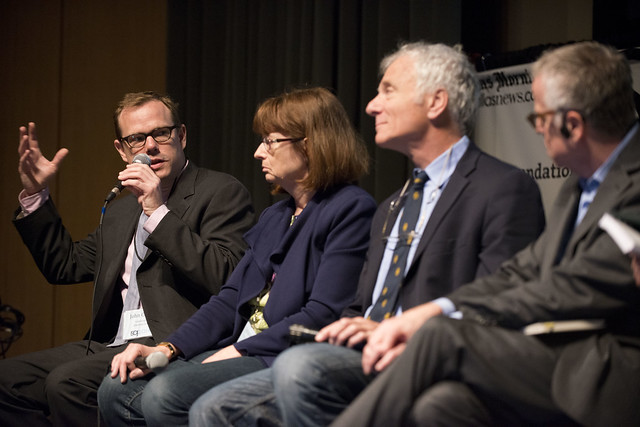April 4, 2014 | Ethics
Journalists discuss media ethics and reporters’ responsibility at ISOJ

At the 15th annual International Symposium of Online Journalism, scholars and journalists discussed issues of ethics in journalism and the changing standards.
In the third section of the symposium, Tom Rosentiel led a panel that included four participants from Canada, the United Kingdom and the United States. Each presenter was given around 15-20 minutes to given their thoughts on ethics.
Jane Singer, one of the panelists and a Professor at the City University of London and the University of Iowa, believes that journalists apply ethics to the changing technological environment.
“Whenever something new comes along, ethics typically are used to distinguish the familiar from the unknown,” Singer said.
Singer said that journalists are often hesitant to changes because of the uncertainty of new technologies. However, Singer believes that new technologies are giving us journalism.
Jay Rosen, a professor at NYU, commented on Singer’s ethics argument. He described her point of view “a way for journalist to flee their anxieties.”
Other presenters had different discussion points. Edward Wasserman, the dean of the Graduate School of Journalism at UC Berkeley, said that journalists have struggled finding a universal set of ethics.
“We have never had a body of ethical doctrine of journalism that is unitary and stable,” Wasserman said.
The panel lasted around 90 minutes and included a Q and A session with the audience.
ISOJ 2014: Challenges in the Digital Age, from Knight Center on Vimeo.

